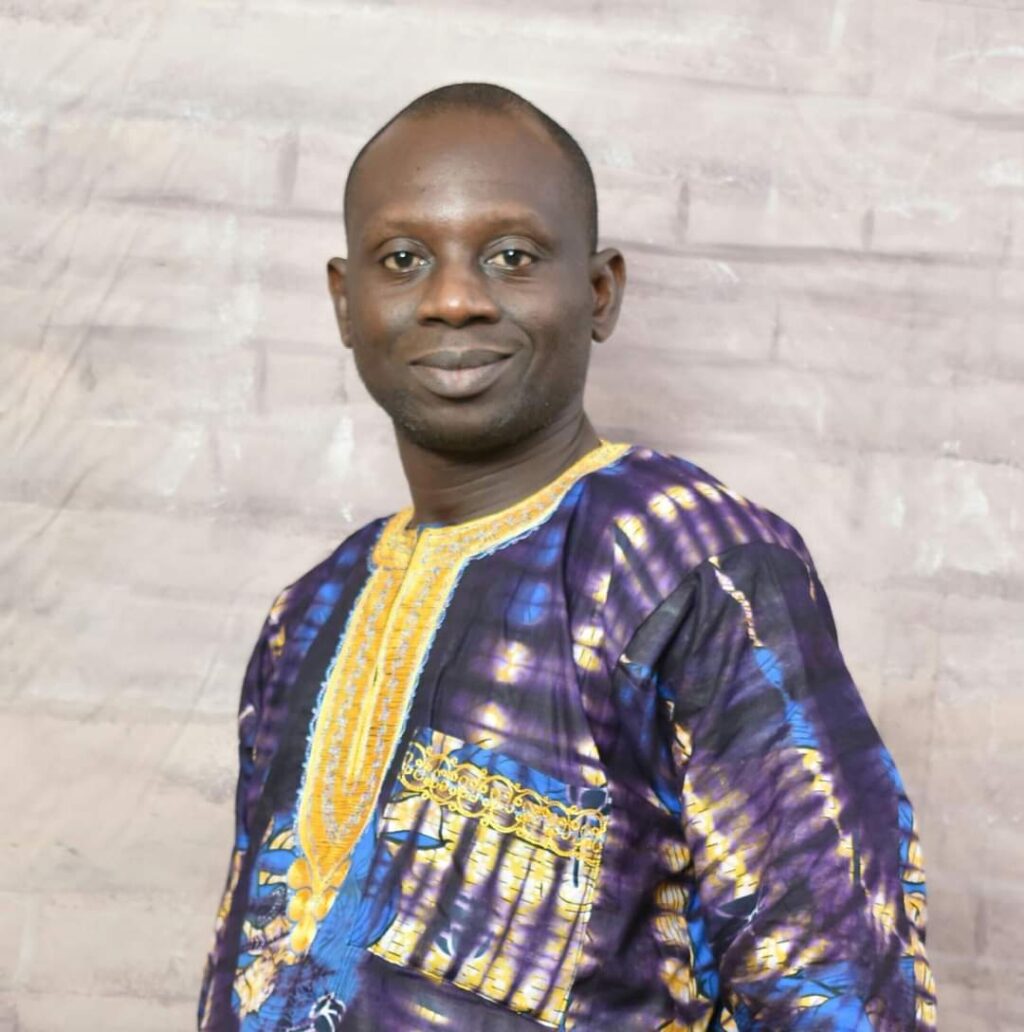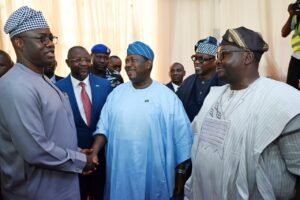In ‘Echoes and Chimes’ by Michael Olatunbosun, Egbokhare issues a warning about a world heading aimlessly down a highway to nowhere.

There are 42 poems in the collection, titled: “Echoes and Chimes,” written by Professor Francis Oisaghaede Egbokhare and published in 2020 by Poets in Nigeria Initiative, Lagos. Francis Egbokhare, a Professor of Linguistics in the Department of Linguistics and African Languages, University of Ibadan, and a fellow of the Nigerian Academy of Letters, is widely published in local and international journals.
In the preface, the author, Prof. Oisaghaede Egbokhare, gives us a hint of his motivation for the collection.
He states that it is an attempt to understand the world through poetry. And he does so skilfully with his exploration of the world around him in the work. For starters, in the opening poem of the collection, titled: “Casualties of Depravities,” the poet discusses the society’s false sense of security, and statelessness described as ‘a disappearing tower’. In this poem an obviously angry poet persona appears to be miffed by the fact that his subjects have a false perception of grandeur. In other words, the poet believes that his subjects are all casualties of their collective corruption.
In the poem: “Mumu,” the poet’s persona addresses Africa, and calls her to shake off the shackles of the powerful West. From the title of this poem, the poet is visibly alarmed at the foolish stupidity of Africa and its people in the way that the west has completely recolonized the people, making them the laughing stock of the earth, and a laboratory for every untested theory. “Your habitations have become the laboratory of failed experiments/Your young are the guinea pigs of mindless research/The women are laid down in desert storms, ravished in the dunes/And the men are ploughed up to fertilize Leviathan.”
In the poem: “The New World,” the poet questions the death of morality and the celebration of the mundane and the weird. The poet wonders about what has happened to the world, where life is now in reverse in everything that used to be the standard.
“In the new world Roles are reversed
Men have wombs Women grow phalluses
Children guardian parents Pets babysit owners
Teachers submit to infantile genius
Masters are servants of the expert crowd
Much as the market is wise without being.”
The poet also thinks that the world has lost itself in the ensuing confusion occasioned by the elevation of the love of self, and individuality at the expense of common sense. This new world, as pictured by the poet, is a world that now glamorises lies and dresses it in the garb of truth, lustful sex is packaged as love, every truth is relative, and advances in technology and ICT are changing the way we live and engage. For the poet, this is a world where every good ideal and value is archaic; it is a world on a highway to nowhere.
Despite being a member of the academia, the poet has a long, strong whip for the occupiers of our ivory towers, and lashes out at them. In the poem “Cranks of Knowledge”, the poet takes a swipe at the ivory towers, his constituency. He describes the university as a ground where merchants hold sway, dishing out uninteresting, dull, drab and uninspiring lessons to the learners. For the poet, the university has become the place where young minds are bred not to be useful for their nation and world, but to contribute to its ruin.
The poet writes:
“Uni-Baranda self is best
Raising crude minds for a woeful cause
Social injustice, unequal chance
Greatness forced with guileless farce.”
In “Stampede of Impostors”, the poet chants about the abolition of values and the unholy ululations of shallow and mindless minding of ignorance at the expense of intellect. He draws upon the biblical imagery of the Pharisee to describe the over-righteous blindness of our society, including the leaders and followers. In the poem, “Pharisees are not from the Past”, the poet lampoons society for its over-spirituality and fake God-consciousness, but inability to reflect this in actions towards neighbours. In an apparent derogation of their fake religiosity, the poet lambasts the leaders of religion, sticking on them labels that suggest that they have abandoned their fundamental obligations and responsibilities to their people. But the poet claims here that the Pharisees are goaded on in their pursuit of vanity because their followers are ignorantly complicit.
In Echoes and Chimes, Francis Egbokhare laments the vanity of humanity and the cycle of conception, birth, death and burial. The poet brings this imagery as a backdrop to caution humans to be humble and shun arrogant accumulation of wealth and arrogation of powers.
In this work, the poet writes in eulogy of nature. For instance, in the poem: “The Moon and the Sun,” the poet writes of the moon as “Soft, meek and gentle lights” and a “bewitching enticer” and the sun as an energizer of the day. In a seeming parody of JP Clark’s poem about Ibadan, Prof Egbokhare writes about Ibadan, a city where he has spent a large chunk of his life.
Thus in an obvious anger at the attitude of its inhabitants to sanitation, cleanliness and order, the poet, in “Ibadan Revisited”, writes,
“Ibadan
Oozing dross of rust and mush
Squashed and splattered among
Hills of human wastes
Like Bodija market in the rain.”
In this collection, we are confronted with poems on religion and religiosity, faith and fantasies. In this collection, the poet also gives us a sweet serving of love songs as well. And in the closing verses of the collection, the poet serves the reader a bite of his running advocacy for the recognition and adoption of pidgin, a hybrid of English and some indigenous African languages.
In the final analysis, the work, Echoes and Chimes, is an aggregation of the poet’s anger, protest and aspirations about the world around him, as well as its occupants. In 67 pages of this collection, the poet packs as many messages as possible into the poems enough to entertain, educate and set an agenda for the reader.
. Olatunbosun is a broadcast journalist, fact-checker and book reviewer at Splash FM 105.5, Ibadan, and he can be reached via molatunbosun@splashfm1055.com, and on X and Instagram @miketunbosun.









